Thelma Reston
출생 : 1937-07-06, Piracanjuba, Goiás, Brazil
사망 : 2012-12-20
약력
Thelma Salim Reston (Piracanjuba, July 6, 1937 – Rio de Janeiro, December 20, 2012) was a Brazilian actress. She has had an extensive career in theatre, television and film. She was awarded at the Gramado Festival for her performance in the film Os Sete Gatinhos (1980).

The documentary "Depois do Transe" covers the entire process of creating the masterpiece "Entranced Earth", which was released and awarded at the Cannes Film Festival in 1967. "Entranced Earth" charmed the world and won great admirers such as filmmaker Martim Scorsese and the writer Marguerite Duras, who at the time considered a "fabulous filmic opera."

Zelda
The troubled adventures of a country novice who goes to the big city to work as a nanny, taking care of the young and rebel sons of a widow businessman.

Writer Sílvio Proença needs to travel to São Paulo in order to promote his new book. At the airport, he meets a group of old mates. With the boarding canceled due to a strong storm, the group goes to the apartment of Marialva, daughter of one of Proença's friends. Seduced by Marialva's music and charms, Proença spends the night there, where he wakes up the next day, completely naked. Still groggy from his hangover, he goes to pick up the bread left outside the apartment; that's when the wind closes the door and leaves him naked outside.

In the darkness of a rural night, a gypsy clan gathers to mourn their beloved patriarch's in a ritual celebrated through music and dance.

Carmélia
On the eve of an important surfing championship, a group of young friends travels along the Brazilian coast with the intention of training hard and having a chance to become professional in the sport. However, along the way, Guel, a surfer bum, falls in love with a rich girl.
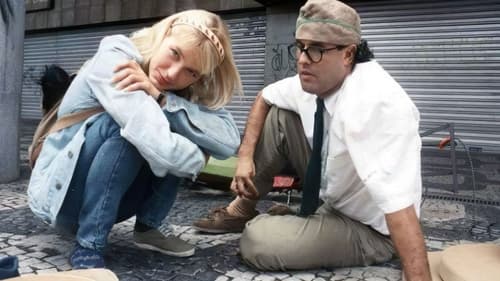
Dona Rolinha
The fairy tale story of Maria da Graça, a small town girl with big time dreams of becoming a singer, who moves to Rio de Janeiro to pursue her ambitions.

A religious comedy in 5 segments, illustrating maniqueism on Earth, as shown by movies. God and his son Jesus disagree on how to manage human life on Earth.

Dede (Guilherne Fontes) is a Brazilian teen who lives with his middle-class grandparents who are members of the local communist party. When his grandmother dies, his grandfather's health soon fades to the point where he can't speak or walk. The local party officials ask Dede to continue to family tradition and take over his grandfather's position of social authority, but when Dede is introduced to cocaine by his best friend Alpino (Marcos Palmeira), the attraction to drugs is more appealing to him than political activism.

pensionista cobradora do Dedé
Didi, Dedé, Mussum and Zacarias are sent in a rescue mission to the daughter of the Army's minister.

Steak's grandma
To get money and produce the play in which his girlfriend acts, an unemployed actor dresses up as a woman and falls in love with a millionaire widower.

Mrs. Olímpia
Quilombo dos Palmares was a real-life democratic society, created in Brazil in the 17th century. This incredibly elaborate (and surprisingly little-known) film traces the origins of Quilombo, which began as a community of freed slaves. The colony becomes a safe harbor for other outcasts of the world, including Indians and Jews. Ganga Zumba (Toni Tornado) becomes president of Quilombo, the first freely elected leader in the Western Hemisphere. Naturally, the ruling Portuguese want to subjugate Zumba and his followers, but the Quilombians are ready for their would-be oppressors. The end of this Brave New World is not pleasant, but the followers of Zumba and his ideals take to the hills, where they honor his memory to this day. Writer/director Carlos Diegues takes every available opportunity to compare the rise and fall of Quilombo with the state of affairs in modern-day Brazil.
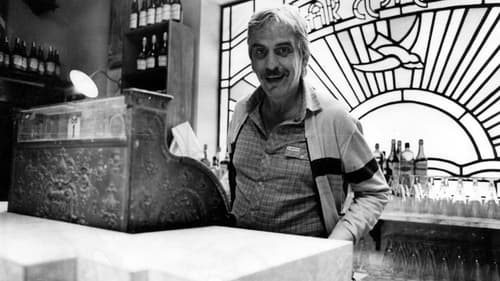
Dona Esperança
A group of eccentric people gather at a popular bar in Ipanema, Rio de Janeiro. Among its costumers, we find Ana, an actress, and her husband Zeca, a writer in crisis about his work.
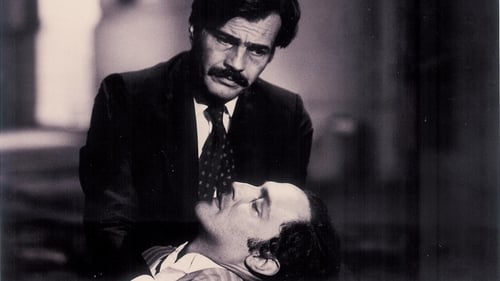
Matilde
When a pedestrian is hit by a bus, the simple clerk Arandir runs and kisses the moribund in a gesture of sympathy and unconditional pure love. Opportunist photographer Amado Pinheiro witnesses the scene and sees the opportunity to sell newspaper and, together with the despicable and abusive chief of police Cunha, accuses Arandir of homosexuality.
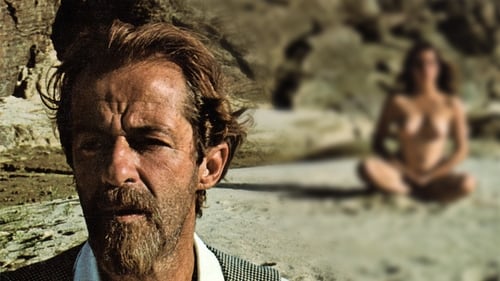
Sinhá
An adventurer travels by train through the Brazilian state of Minas Gerais, meeting old and new lovers and remembering love affairs of his youth.

As soon as Mauro, an Administration student, discovers a strong vocation for mediumship, he drops everything to go deeper and dedicate himself to Umbanda, a religion he embraces so strongly that it makes him give up his studies. Determined to open his own spiritist center, Mauro moves to the countryside.

Gorda (as Telma Reston)
Noronha is a low middle-class civil servant who lives with his frustrated wife Gorda and their three elder daughters. The youngest one, virginal Silene, is unexpectedly sent back home. Noronha discovers she has been expelled from boarding school for having killed a female cat and her seven newborns in a hysterical fit. Many dark family secrets will emerge from that episode leading to tragic events.

Alcebíades's Wife
Paulo Otávio is the host of a pirate radio station on the slums of Rio de Janeiro. He struggles to mantain the station working, since the only help he's got comes from news reporter Calói. Their story goes beyond as the city starts to face a crime wave.

Anunciata
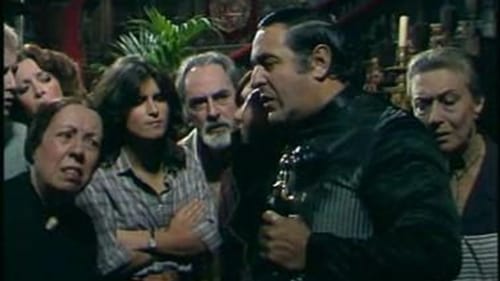
Anunciata
Tadeu, a poor lad from the Northeast of Brazil, comes to Rio de Janeiro to try his luck. His good looks and education win him the favor of rich people. In his spare time, he becomes the favorite among lonely and rich ladies. Soon he gets involved in trouble.

Madalena de Oliveira
Jorden Er Flad or The Earth is Flat is based on the play Erasmus Montanus, from the classical era in Danish literature, by Ludvig Holberg. Director Henrik Stangerup had the play translated into Portuguese, and adapted it for filming in contemporary Brazil. In this comic movie, a group of villagers have scrimped and saved to send their fellow villager Erasmus Montanus (Fausto Wolff) away for an education. When the boy returns to his village, he is stuffed full of book-learning of a kind which is of absolutely no use to those of the village. The boy, rather than seeing his situation clearly, continues to spout learned platitudes, including the incredible observation, "the earth is round," supported by nothing other than his authority as an "educated man." Understandably, his posturing provokes derision.

Carlos and Suely are a normal couple. He has some extramarital adventures and she's a standard housewife. During a Carnival, when he goes out wearing a vampire costume, Suely decides to follow a friend's advice and go for it. On Ash Wednesday, he finds her with an odalisk costume on and happier than usual.

The story of a poor woman living in the backwoods of Brazil and working as a maid. One day she is unfairly fired from the house where she was working and goes to the big city, facing a cruel and hostile world, working in factories, bars and bordellos.

Maria Apaga a Luz
A young couple uses creativity to escape the rules of the girl's father, a conservative Italian, and her grandmother. Even under the patriarch's watch, the roguish boyfriend manages to fulfill his desires.

Tourist
Ângela Carne e Osso (Angela Meat and Bone), a young nymphomaniac, lives surrounded by delinquents, and exerts intense allure on them, dominating them all with her erotic power.

A long time public servant is told by an angel that he will die at midnight of the following day.

Employees on a local supermarket plot an epic heist for robbing the place's vault, but things start to go wrong when they notice a police detective on their heels.

In the village of Leva-e-Traz, the discovery of a oil field is responsible for a mass evasion of the townspeople. Left are the old and incapable for the extraction job. When the local priest announces he, too, is leaving the town, Satan emerge thrilled with the chance of overtaking the place.

Mulher de Felício
남아메리카의 상상 국가 엘도라도, 임종 직전의 파울루는 자신의 삶을 돌아본다. 정치 영화의 걸작으로 꼽히는 이 작품에서 감독은 인민주의적 좌파와 파시스트적 우파가 모두 실패한 과정을 꼼꼼히 파헤친다. 전형적인 이야기 구조를 거부하며 새로운 방식의 플롯을 선보이는 은 라틴 아메리카의 엄혹한 “정치적 경험의 느낌”(로버트 스탬)을 표현한다.

A shockingly irreverent follow-up to the rural austerity of Barren Lives, dos Santos’ Godardian social satire owes more than a nod to the self-conscious antics of the French New Wave. The pampered son of a general, El Justicero is a hipster playboy who fancies himself a James Bond/Jean Paul Sartre urban hero. “Archetypical” yet “full of contradictions,” he sees that justice is achieved for the disadvantaged while taking advantage of certain bourgeois perks. His exploits are closely followed and eventually directed by his biographer who decides a film is not only more lucrative than a book, but it gives him the luxury of reviewing previous scenes. Unlike Bond, El Jus eventually experiences an awakening which threatens to compromise the entertainment value and glamour of his life story. - Harvard Film Archive

Originally produced for German TV, Improvised and Purposeful is a firsthand look at the "Cinema Novo" movement (otherwise known as the 'Brazilian New Wave'). Director Joaquim Pedro de Andrade focuses on six Cinema Novo filmmakers working in Rio in 1967.

After marrying everyday man Zózimo, Engraçadinha, who had been through intense sexual experiences as a teenager, settles to live a quiet and normal life. As the years go by, her teenage daughter's behaviour seems to call back Engraçadinha's own teenage days.

While still a child, Lollipop falls in love with her orphaned cousin Silvio, who has been raised as a member of the family by her father, Dr. Arnaldo, a highly respected government official. Years pass, and to Lollipop's dismay, Silvio becomes engaged to her cousin Leticia. During the engagement party, the enraged Lollipop seduces Silvio, and sometime later, she reveals to Leticia that she is pregnant as a result of the encounter.


















